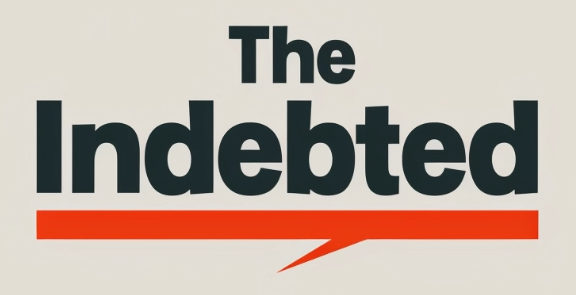Taking out a loan from your 401(k) is an option that some people consider when they need to pay off debt. It’s an appealing option because it’s a loan from yourself, and you don’t have to go through the hassle of applying for a loan from a bank or other financial institution. However, it’s important to consider the pros and cons before taking out a 401(k) loan.
One of the main advantages of taking out a 401(k) loan is that you don’t have to worry about a credit check. This can be especially beneficial if you have a poor credit score or no credit history. Additionally, the interest rate on a 401(k) loan is typically lower than the interest rate on a credit card or personal loan, which can save you money in the long run. However, it’s important to note that you will be paying interest on the loan, and that interest goes back into your own 401(k) account.
Understanding 401(k) Loans
As you consider taking a 401(k) loan to pay off your debt, it is important to understand the basics of borrowing from your 401(k). In this section, I will cover the key points you need to know to make an informed decision.
Basics of Borrowing from Your 401(k)
A 401(k) loan is a loan taken out against the balance of your 401(k) account. The loan is repaid with interest and typically deducted from your paycheck over a period of up to five years. One of the biggest advantages of a 401(k) loan is that you are borrowing from yourself, so there is no need for a credit check or loan application.
Interest Rates and Repayment Terms
The interest rate on a 401(k) loan is typically lower than that of a credit card or personal loan. However, it is important to note that you are still paying interest on the loan, which means you are effectively paying yourself interest. The repayment terms for a 401(k) loan are typically up to five years, although some plans may allow longer repayment periods for loans used to purchase a primary residence.
Loan Limits and Vesting Requirements
The maximum loan amount is usually 50% of your vested account balance or $50,000, whichever is less. It is important to note that not all of the money in your 401(k) account may be vested, which means that you may not be able to borrow as much as you think. Additionally, if you leave your employer before the loan is repaid, you may be required to repay the loan in full or face taxes and penalties.
In summary, a 401(k) loan can be a useful tool for paying off debt, but it is important to understand the basics of borrowing from your 401(k). You should consider the interest rates and repayment terms, as well as the loan limits and vesting requirements, before making a decision.
Pros of Using a 401(k) Loan to Pay Off Debt
Taking a loan from your 401(k) to pay off debt can be a viable option for some people. Here are some potential benefits:
Avoiding Credit Checks and Loan Applications
One of the main advantages of a 401(k) loan is that you don’t need to go through a credit check or loan application process. This can be a big relief for people who have poor credit scores or who have been turned down for loans in the past. Since you’re borrowing from your own retirement savings, there’s no need to prove your creditworthiness to a lender.
Lower Interest Rates Compared to Other Loans
Another potential advantage of a 401(k) loan is that the interest rate may be lower than what you would pay for other types of loans. While the interest rate on a 401(k) loan may be higher than the rate you’re earning on your retirement savings, it’s likely to be lower than what you’d pay on a credit card or personal loan. This can save you money in the long run, especially if you’re carrying high-interest debt.
Potential Tax Benefits
Another potential benefit of a 401(k) loan is that the interest you pay on the loan is tax-free. Since you’re borrowing from your own retirement savings, you’re not subject to the same tax rules as you would be if you borrowed from a bank or other lender. This can be a significant advantage, especially if you’re in a high tax bracket.
Overall, a 401(k) loan can be a useful tool for paying off debt, but it’s important to weigh the pros and cons before making a decision. While there are some potential benefits, there are also risks to consider, such as the potential impact on your retirement savings and the possibility of defaulting on the loan.
Cons of Taking a Loan from Your 401(k)
When considering taking a loan from your 401(k) to pay off debt, it’s important to understand the potential drawbacks. While there are some benefits to taking a loan from your 401(k), you should carefully weigh the pros and cons before making a decision.
Risks to Retirement Savings
One of the biggest risks of taking a loan from your 401(k) is that it can negatively impact your retirement savings. When you take a loan from your 401(k), you’re essentially borrowing from your future self. The money you take out of your retirement account will no longer be invested, which means it won’t have the opportunity to grow over time. This can have a significant impact on your retirement savings, especially if you take out a large loan or if you’re unable to repay the loan on time.
Penalties and Taxes on Early Withdrawal
Another potential drawback of taking a loan from your 401(k) is that you may be subject to penalties and taxes on early withdrawal. If you’re under the age of 59 1/2 and you take a loan from your 401(k), you may be subject to a 10% early withdrawal penalty. Additionally, if you’re unable to repay the loan on time, the outstanding balance may be treated as a distribution, which means you’ll owe income taxes on the amount you borrowed.
The Impact on Your Financial Plan
Taking a loan from your 401(k) can also have a significant impact on your overall financial plan. When you take a loan from your 401(k), you’re essentially diverting money away from other financial goals, such as saving for a down payment on a house or building an emergency fund. This can make it more difficult to achieve these goals in the future, which can have a negative impact on your overall financial well-being.
In summary, while taking a loan from your 401(k) can be a viable option for some people, it’s important to carefully weigh the potential drawbacks before making a decision. By understanding the risks to your retirement savings, the potential penalties and taxes on early withdrawal, and the impact on your overall financial plan, you can make an informed decision that’s right for your unique financial situation.
Alternatives to a 401(k) Loan
When it comes to paying off debt, taking a loan from your 401(k) may seem like a quick and easy solution. However, before you make that decision, it’s important to consider the alternatives that may be available to you. Here are some other options to consider:
Personal and Home Equity Loans
If you have good credit and equity in your home, a personal loan or home equity loan may be a better option than a 401(k) loan. Personal loans typically have lower interest rates than credit cards, and home equity loans may have tax benefits. However, keep in mind that these loans may require collateral, and missing payments could result in the loss of your home.
Credit Cards and Balance Transfers
While credit cards often have high interest rates, they may still be a better option than a 401(k) loan if you can pay off the balance quickly. Some credit cards also offer balance transfer promotions with low or 0% interest rates for a limited time. However, be sure to read the fine print and understand any fees associated with these promotions.
Hardship Withdrawals and Other Options
If you’re facing financial hardship, you may be able to take a hardship withdrawal from your 401(k) without penalty. However, keep in mind that you’ll still have to pay taxes on the withdrawal, and it may not be enough to cover your debt. Other options to consider include negotiating with your creditors, seeking credit counseling, or selling unused items to raise funds.
Before taking a loan from your 401(k), it’s important to explore all of your options and understand the potential consequences. While a 401(k) loan may seem like an easy solution, it could have long-term effects on your retirement savings.
Making the Decision
When considering taking a loan from your 401(k) to pay off debt, it’s important to evaluate your financial situation and consult a financial advisor before making a decision. Here are some factors to consider:
Evaluating Your Financial Situation
Before taking a loan from your 401(k), it’s important to evaluate your overall financial situation. Consider your current debt load, your financial goals, and your ability to repay the loan. Taking a loan from your 401(k) may help you pay off debt in the short term, but it could impact your long-term financial goals.
Consulting a Financial Advisor
It’s always a good idea to consult a financial advisor before making any major financial decisions. A financial advisor can help you evaluate your options and determine if taking a loan from your 401(k) is the best course of action for your specific situation. They can also help you understand the pros and cons of taking a loan from your 401(k) and how it could impact your overall financial plan.
The Bottom Line
Taking a loan from your 401(k) to pay off debt can be a good option for some people, but it’s important to carefully consider the pros and cons before making a decision. If you decide to take a loan, make sure you understand the terms of the loan and have a plan in place to repay it. Remember, taking a loan from your 401(k) could impact your long-term financial goals, so it’s important to weigh the potential benefits against the potential risks.





